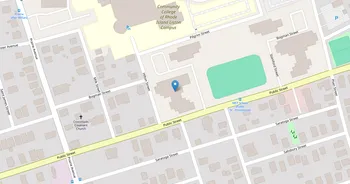MotoRing Technical Training Institute (MTTI) : Overview, Courses, Scholarships & Rankings
About MotoRing Technical Training Institute
Just across the river from Providence, MotoRing Technical Training Institute is known for a hands-on, learn-by-doing style. Labs and training bays feel like real workplaces, and instructors bring industry know-how that pushes students to think on their feet. Academics stay practical and focused, with time on equipment, problem solving, and team projects that echo the job site.
Students describe a tight, respectful culture where people help each other get it right. Support includes advising, tutoring, and a career office with a reputation for employer connections, resume prep, and interview practice. Outside class, look for skills meetups and community projects. East Providence puts internships, shops, and Providence's creative energy close by, with escapes to the waterfront. It's a place to build skills and get to work.
Key Institutional Details
Contact & Profile
Academic & Institutional
Academic Programs & Fields of Study
MotoRing Technical Training Institute (MTTI) offers 1 degree programs across 1 major academic fields, graduating approximately 138 students annually. The most popular fields by graduate volume are Construction (1 programs, 138 graduates). Explore program details, award levels, and graduate demographics below.
Construction (1 programs, 138 graduates)
Building Trades, Construction Management and Skilled Crafts
| Program Name | Graduates | Gender Distribution | Award Levels | CIP Code |
|---|---|---|---|---|
| Electrician | 138 |
|
Certificate (1-2 yrs)
|
46.0302 |
Tuition, Fees & Estimated Costs
Overview of tuition rates, housing, and other annual education expenses for undergraduate and graduate students
Financial Aid & Student Support
Summary of scholarships, grants, student loans, and financial aid statistics for undergraduate students
Student Success Metrics
Graduation rates and post-graduation earnings to help assess student outcomes and long-term value of education.
Loan Burden & Repayment Outcomes
Breakdown of loan repayment rates and student debt levels by income and dependency status.
Frequently Asked Questions
Find answers to the most common questions about MotoRing Technical Training Institute (MTTI)
What academic programs and degree levels does MotoRing Technical Training Institute offer?
MotoRing Technical Training Institute (MTTI) offers 1 academic programs across 1 major fields of study, with available degree levels: Certificate (1-2 yrs).
Most popular program areas include:
- Building Trades, Construction Management and Skilled Crafts (1 programs)
Data based on IPEDS program completions for 2023-2024 academic year. Numbers reflect programs where students graduated, not all offered programs.
What financial aid and scholarships are available at MotoRing Technical Training Institute?
MotoRing Technical Training Institute (MTTI) provides financial aid to 74% of first-time, full-time students, with average grants of $6,733 and average loans of $7,272.
Average financial aid amounts by type:
- Pell grants: $4,543
- State/Local grants: $3,595
- Federal loans: $7,083
The university supports 59 students with grants and 68 students with loans annually.
Data based on IPEDS for 2022-2023 academic year. Financial aid amounts and percentages may vary by program, enrollment status, and individual circumstances.
What is the average salary for MotoRing Technical Training Institute graduates?
MotoRing Technical Training Institute (MTTI) graduates earn a median salary of $42,100 after 6 years and $48,281 after 10 years.
The salary range 10 years after graduation spans from $27,509 (25th percentile) to $64,466 (75th percentile).
Data based on IPEDS for 2022-2023 academic year. Salary data reflects graduates who received federal financial aid (approximately 60% of all graduates). Actual earnings may vary significantly based on program, location, and individual circumstances.
Related Universities




Found something useful? Help others discover it too! Share with friends, on social media, or save for later - every share helps someone find the information they need.